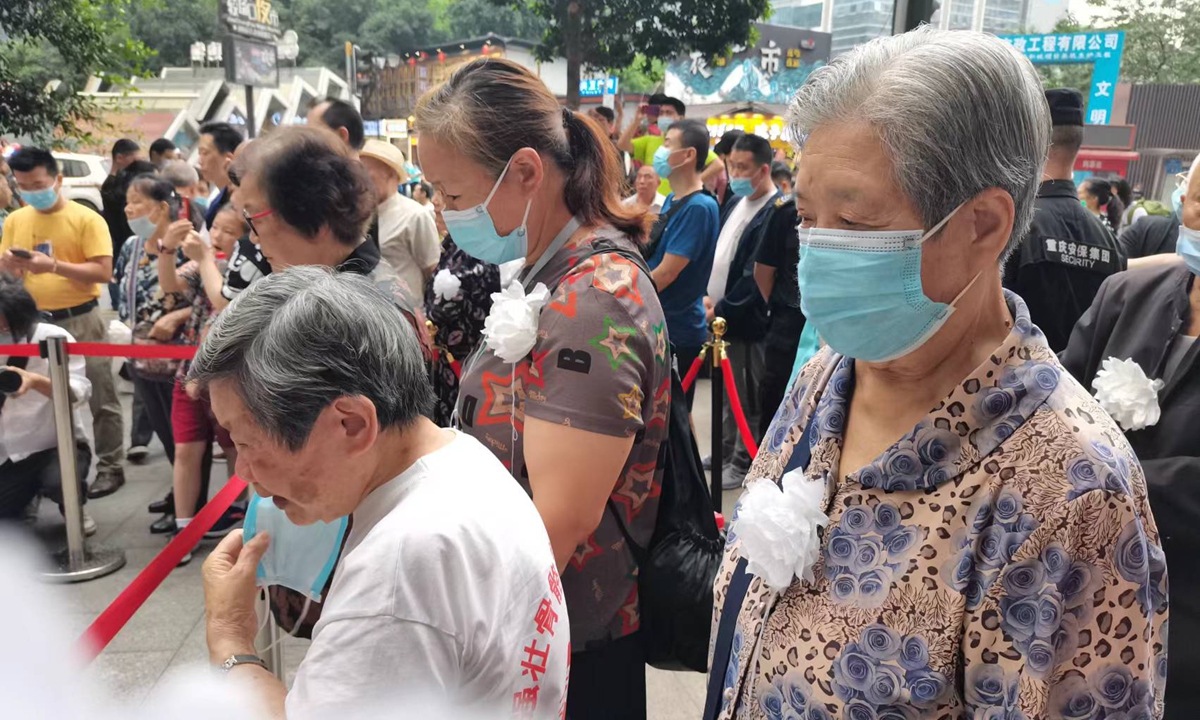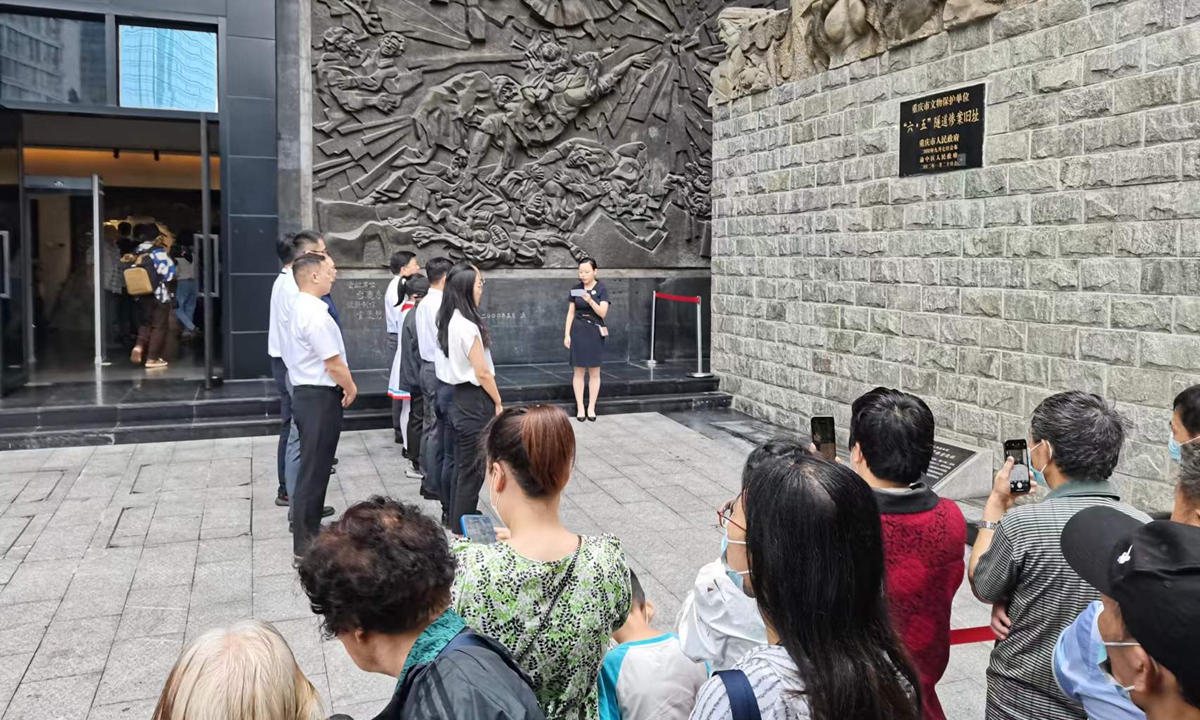
People pay tribute to the victims of the Bombing of Chongqing to commemorate the 81st anniversary of the tragedy during the War of Resistance against Japanese Aggression (1931-45) in Southwest China's Chongqing Municipality. Photo: Courtesy of Jiang Yifu, a relative of one of the victims of the tragedy
Mournful air-raid sirens sounded through the sky and memorial events were held across Southwest China's Chongqing Municipality on Sunday morning, with 32 million local residents paying tribute to the victims of the Bombing of Chongqing to commemorate the 81st anniversary of the tragedy during the War of Resistance against Japanese Aggression (1931-45).
Chinese observers warned of the rise of Japanese militarism and urged Japan to draw lessons from history, given that Japanese Prime Minister Fumio Kishida is considering attending a summit of leaders from NATO in late June.
On Sunday morning, a memorial event was held at the Memorial Site of the Bombing of Chongqing, which was attended by representative students and teachers from a local primary school together with more than 30 survivors and relatives of the victims of the tragedy.
More than 2,000 civilians died of asphyxia while seeking shelter in tunnels from five-hour air strikes carried out by the Japanese army in the city on June 5, 1941, according to the city's archives
While calling the air strikes by the Japanese army "brutal and inhuman," Jiang Yifu, a relative of one of the victims of the tragedy, who attended the memorial event, told the Global Times on Sunday that by holding the commemoration activity, we should remember history and safeguard peace.
Since 1998, air raid sirens have been sounded for 12 minutes in Chongqing on the morning of June 5 every year to remind people of the tragic history of the bombing launched by the Japanese invaders between 1938 and 1943, a major war crime committed by the Japanese army in China during the WWII.
According to the city's archives, the Japanese forces repeatedly carried out comprehensive, undifferentiated and continuous carpet-style bombing tactics against Chongqing between February 1938 and August 1943. A total of 218 air raids were launched, with 9,000 bombers dispatched and more than 11,500 bombs dropped.
The bombers did not differentiate between military and civilian targets, with residential and business areas, schools and hospitals being among the main targets, which resulted in a huge loss of life and massive economic damage, causing 24,000 casualties, destroying more than 17,000 houses and over 37,000 rooms.

People pay tribute to the victims of the Bombing of Chongqing to commemorate the 81st anniversary of the tragedy during the War of Resistance against Japanese Aggression (1931-45) in Southwest China's Chongqing Municipality. Photo: Courtesy of Jiang Yifu, a relative of one of the victims of the tragedy
However, the Japanese government is apparently forgetting lessons of history, as according to Reuters, Kishida is considering attending a summit of leaders from NATO, the military alliance led by the US, in late June.
Liu Jiangyong, vice dean of the Institute of Modern International Relations at Tsinghua University, told the Global Times on Sunday that Japan's national strategy is very worrying since some of Japan's ostentatious diplomatic activities are targeting China.
In the national security strategy rolled out by the ruling Liberal Democratic Party on April 21, China was defined as the main threat to Japan together with Russia and North Korea. Liu noted this was the first time since WWII that Japan has taken such strategic positioning toward its neighbors.
If Kishida joins the NATO summit, a regional hegemony could be formed in East Asia against the backdrop of the Russia-Ukraine crisis to suppress China, Liu said. The expert warned of the rise of Japanese militarism and urged the country to draw lessons from history.





